Diversity, Equity, and Inclusion (DEI) Faculty Fellows 2024-2025
The Office of Faculty Affairs and Development is pleased to announce the launch of the 2024-2025 inaugural Diversity, Equity, and Inclusion (DEI) Faculty Fellows initiative.
The work of the DEI Faculty Fellows will align with CSUSB’s strategic plan to enhance our DEI commitment, resources, and support for faculty across ranks. The DEI Fellows’ key responsibility will be to bolster each college’s ability to advance DEI in faculty recruitment, evaluation, and retention. The Faculty Fellows will also develop and deliver evidence-based training to CSUSB faculty to increase faculty DEI.
During the 2024-2025 fellowship year, the Faculty Fellows will participate in a faculty learning community (FLC) and complete a range of professional development experiences to enhance their expertise and skills. In consultation with Dr. Lori Caruthers Collins, Director of Diversity Initiatives, and Dr. Donna Garcia, Senior Faculty Fellow, the Fellows will work collaboratively with the Dean and faculty in their college on DEI-related activities and serve as a resource to guide recruitment, evaluation, and retention efforts.
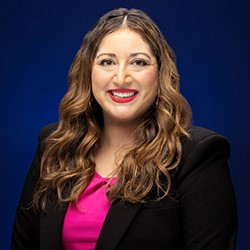
Nancy Acevedo, Ph.D.
Dr. Nancy Acevedo is Professor of Educational Leadership Doctoral Studies and Co-Director of Development for Women of Color in Academia at California State University, San Bernardino. Nancy co-led the development of the community college specialization in the CSUSB EdD program and supports community colleges with staff and faculty development efforts, particularly related to issues of equity, inclusion, and STEM. Dr. Acevedo is invested in leading DEI efforts at CSUSB with the aim to foster a sense of belonging for students, staff, and faculty who have been excluded historically from higher education due to racism, sexism, capitalism, and other systems of oppression.
As an interdisciplinary scholar, Dr. Acevedo engages with critical race theory and Chicana feminist theories to examine pathways to and through college for Students of Color, with a focus on community colleges, STEM, and college completion. Alongside Dr. Gilberto Conchas, she co-authored The Chicana/o/x dream, which received a book award from the American Association for Hispanics in Higher Education. A first-generation student, Nancy earned her BA in Chicano Studies, Social Welfare, and Legal Studies from the University of California, Berkeley, MA in Mexican American Studies from San Jose State University, and PhD in Education at the University of California, Los Angeles.
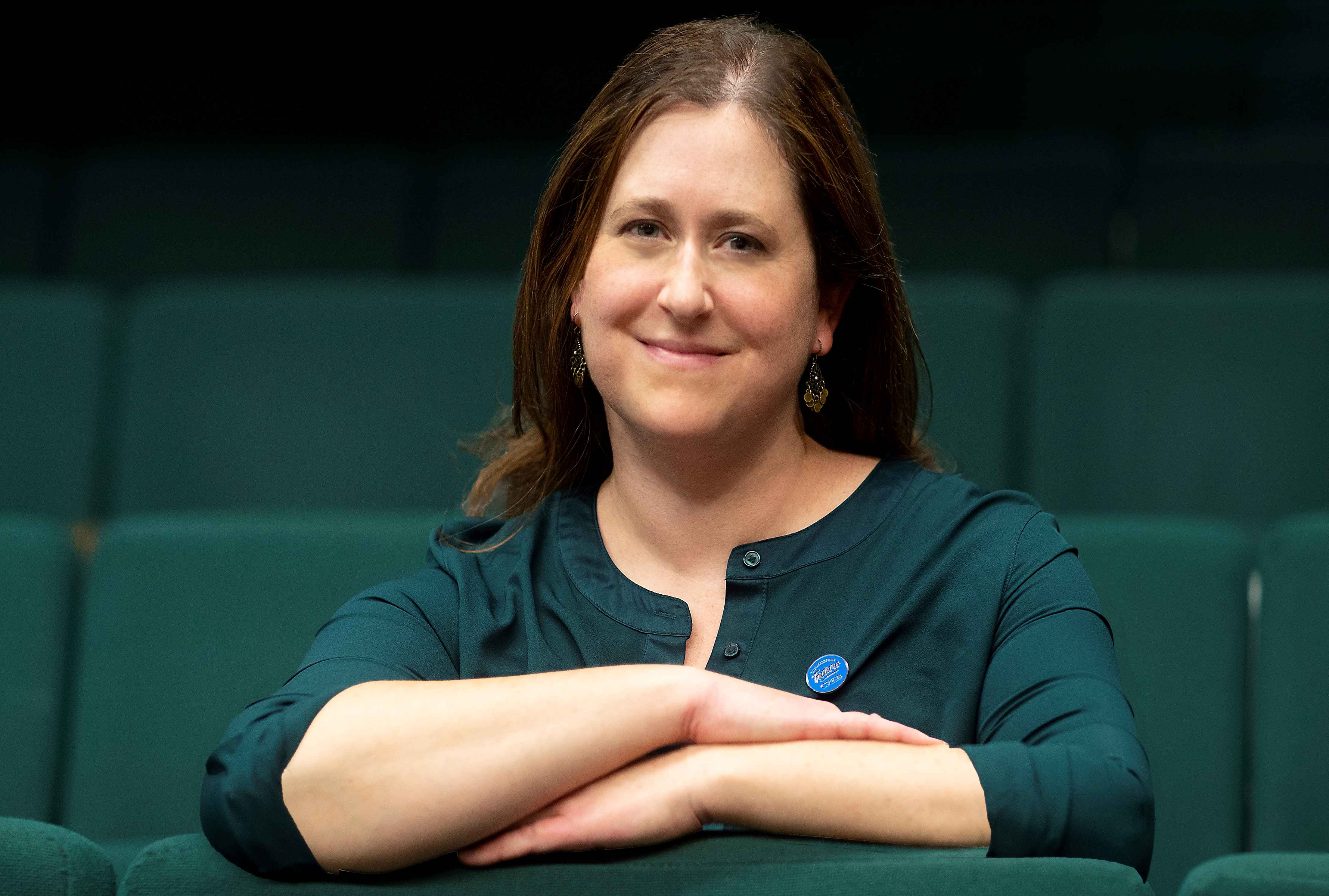
Brittany Bloodhart, Ph.D.
Brittany Bloodhart's career has been based around addressing issues of diversity, not only in the type of research that she does, but also in the methodologies she utilize, the courses she teaches, and the service she has engage in. Her research examines the way people think about the harms that come to marginalized groups, and what motivates individuals to take action on behalf of those who hold less power and status. Brittany currently has an NSF grant to examine sexual harassment and gender bias in academia and has a background in what makes messaging and programming effective, particularly as it’s applied to issues of prejudice and discrimination (e.g., developing effective bias training workshops). Brittany teach courses that either directly address issues of diversity from a psychological perspective (e.g., Psychology of Gender), or continually incorporate diversity-related issues into other courses (e.g., Social Psychology). Brittany is also committed to promoting diversity and equity through service. She is currently on the President’s DEI board for curriculum and student learning and participate in multiple professional organizations, including the Society of the Psychological Study of Social Issues. Brittany is involved with local activist organizations related to social justice, and have given talks at city events and local government roundtables to help incorporate social science into efforts to address issues of equality.
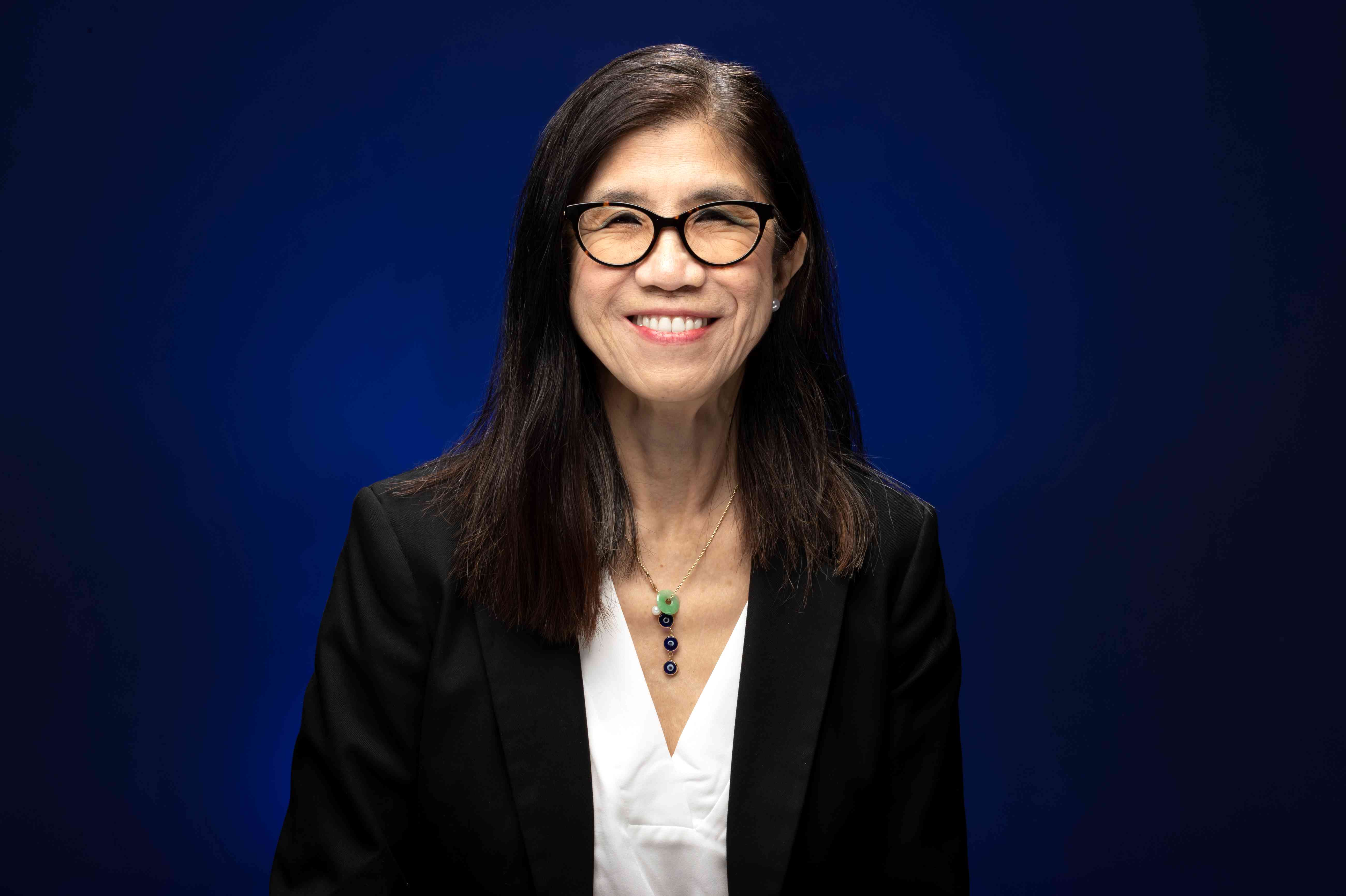
Jane Chin Davidson, Ph.D.
As a Professor of Art History/ Global Cultures at CSUSB, my research on artistic performances of Chinese identities includes curatorial sites and subjects of cultural transnationalism, feminism, eco-feminism, and environmental activism. In my pedagogical work, I have published extensively on diversity and inclusion, particularly the conditions for women of color in the academy as discussed in my essay for Patricia Matthew’s edited book Written/Unwritten: Tenure and Race in the Humanities, Durham: University of North Carolina Press (2016). At CSUSB, I have always integrated the subjects of race, gender, and sexuality into every course that I teach. As a woman from an immigrant-class background, I hope to emulate those teachers who inspired my own process of empowerment, and those who adopted explicit approaches to equity and inclusion, acknowledging the inherent biases of the institutional norm. I consider the work of education to be an activist opportunity, motivated by the fact that the best education has always been a privilege granted more easily to some than to a great majority of others. How can we make a difference now that we are a part of the academic institution?
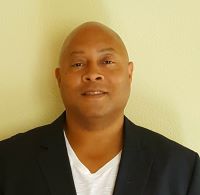
Marc Fudge, Ph.D.
Over the course of his time at California State University San Bernardino, Dr. Fudge has been heavily involved in the area of diversity, equity and inclusion. In addition to infusing social equity within the context of his teaching, he was was selected by the National Academy of Public Administration (NAPA) to develop a model that measured social equity in US local governments and nonprofit organizations. As a result, he co-authored a white-paper titled “Moving from Theory to Policy Implementation - An Evaluative Assessment of Social Equity Practices in US Local Governments.” In 2017, President Morales appointed him to work on the African-American Recruitment and Retention Task Force. From 2014 through 2019 he served on the executive committee of the Conference of Minority Public Administrators (COMPA), culminating as president in 2018. While president of COMPA, Dr. Fudge organized the annual conference in Los Angeles, California where the theme was Inspiring Leadership During Difficult Times and highlighted the professional achievements of women in leadership. Dr. Fudge has led workshops and panels related to DEI initiatives such as, serving as a guest speaker at the 2018 American Society for Public Administration Annual Conference workshop on Social Equity, Diversity and Inclusion. Also, in 2018 he conducted a workshop for Inland Empowered at the Riverside Voter Empowerment Workshop on the topic of Representative Bureaucracy. He previously served as the managing editor for the Journal of Public Management and Social Policy which publishes theoretical, applied, and discussion papers on public administration, political science, and public policy issues associated with the process of economic, educational, environmental, political, and social well-being of diverse populations. Recently, He has published research titled “Improving the budgetary process – Meeting the public where they are,” which explores ways government can improve communication with traditionally marginalized and disadvantaged groups and a book chapter titled , “The Inequity of User Fees and the Overreliance by Communities to Generate Revenue.”
I believe DEI is essential to the growth and sustainability of all organizations because it allows more people to contribute its overall success. As society and the workplace become more diverse, it is critical for our places of work to representatively mirror the composition of our communities in thought, practice and action.
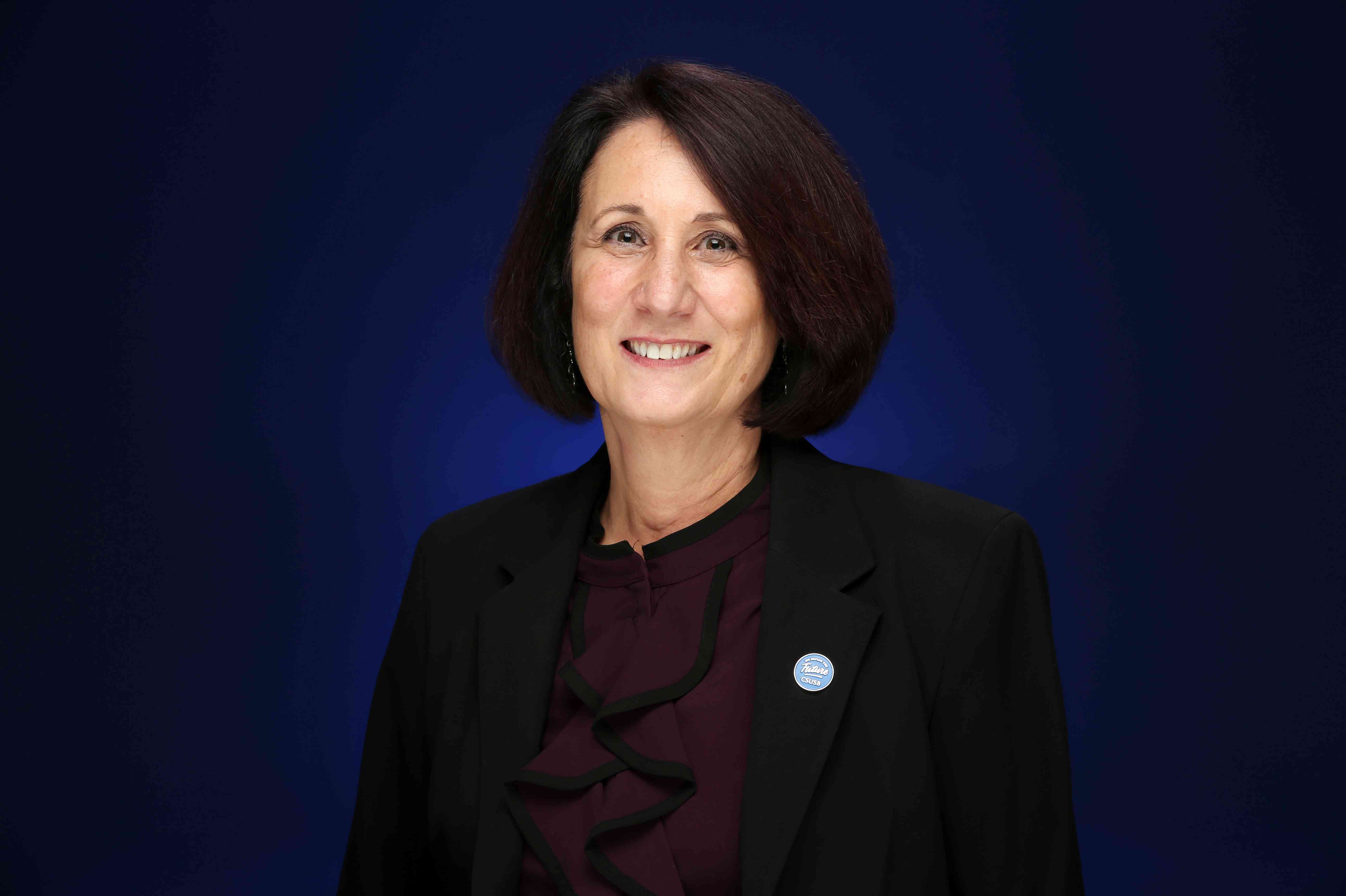
Donna Garcia, Ph.D.
Dr. Donna Garcia obtained her doctorate in experimental social psychology from the University of Kansas in June 2006 and her Master’s in applied social psychology from the University of Guelph, Canada, in May 2001. After completing her doctoral studies, she received two postdoctoral fellowships: one from the Canadian Social Sciences and Humanities Research Council (SSHRC) and the second from the Canadian Institute for Advanced Research (CIFAR). In line with her training as a diversity scientist, these fellowships both focused on identifying and redressing factors that have historically created unequitable outcomes across groups of peoples and societies.
Since her appointment at CSUSB in 2009, Dr. Garcia has received NSF funding for her research and applied work concerning women’s and ethnic minorities’ participation in STEM fields. She was a co-PI on an NSF EHR Core Research Grant that supported her research on intersectionality and broadening women’s participation in STEM fields. She was a co-PI on a $125,000 CSU Chancellor’s Office mini-grant that supported the “Prejudice Habit Breaking” intervention to advance faculty diversity at CSUSB. She later was the PI on an NSF ADVANCE grant (2018-2022) and served as the Director of the Diversity and Equity in Promotion, Tenure, and Hiring (DEPTH) Center, which delivered initiatives to increase the use of best practices in faculty hiring and evaluation. Dr. Garcia served on the President’s Council on Diversity, Inclusion and Equity (CODIE) and the President’s Diversity, Equity, and Inclusion (DEI) Committee.
Dr. Garcia has been actively involved in shared governance at CSUSB. She has served on the Faculty Senate since 2017. During those years, she served on the Executive Committee for three years, as the Vice Chair of the Faculty Senate for two years, and on the Faculty Affairs Committee since 2022. She also serves as a statewide Senator representing CSUSB on the ASCSU.
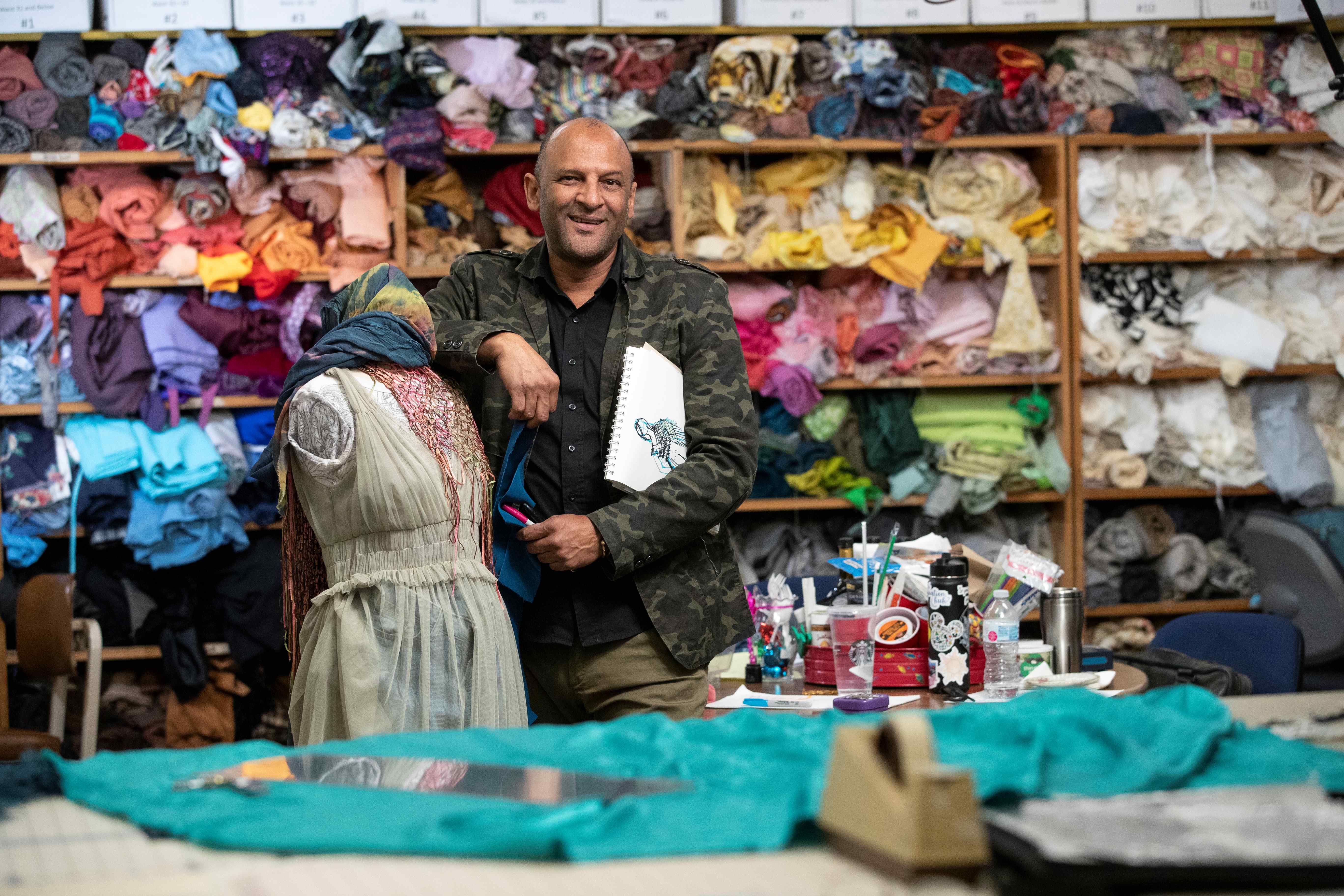
Andre Harrington, M.F.A.
Andre Harrington is a professor of design in the Theatre Arts Department at CSUSB. He began his teaching career in 2006 after a freelance costume design career based in Philadelphia PA. Originally from Washington DC, Mr. Harrington received his undergraduate degree from the University of Maryland at College Park and an M.F.A in theatre design from the University of Iowa. Mr. Harrington’s work with DEI at CSUSB began with the campus Diversity Committee under President Karnig’s leadership and chairmanship of Dr. Milton Clark, later chaired by Dean Cesar Caballero. Harrington and co-facilitate annual diversity training sessions for new employees. I often partnered with Mrs. Twillea Evans-Carthen the campus Ombudspersons, Judy Cruz the coordinator for the Pride Center, and Osher Adult Re-entry Center, Misty Livingston from the Office of Student Leadership. Professor Harrington aligns himself with the new campus DEI Board, by providing mentorship to our campus student body, engaging, when possible, with student-related and supported activities as well as including diversity, equity, and inclusion exercises in my classroom and theatre design projects.
As a personal note, “I feel that I provide a stable and solid foundation for leading and facilitating conversations around DEI issues that have now become larger and more expansive since my hire in 2006. Our campus population has grown in numbers as well as in variation. We see faculty, staff, and students engage with current issues and burgeoning conversations of race, gender, and representation that will result in hiring and retention practices to benefit the campus community and beyond”.
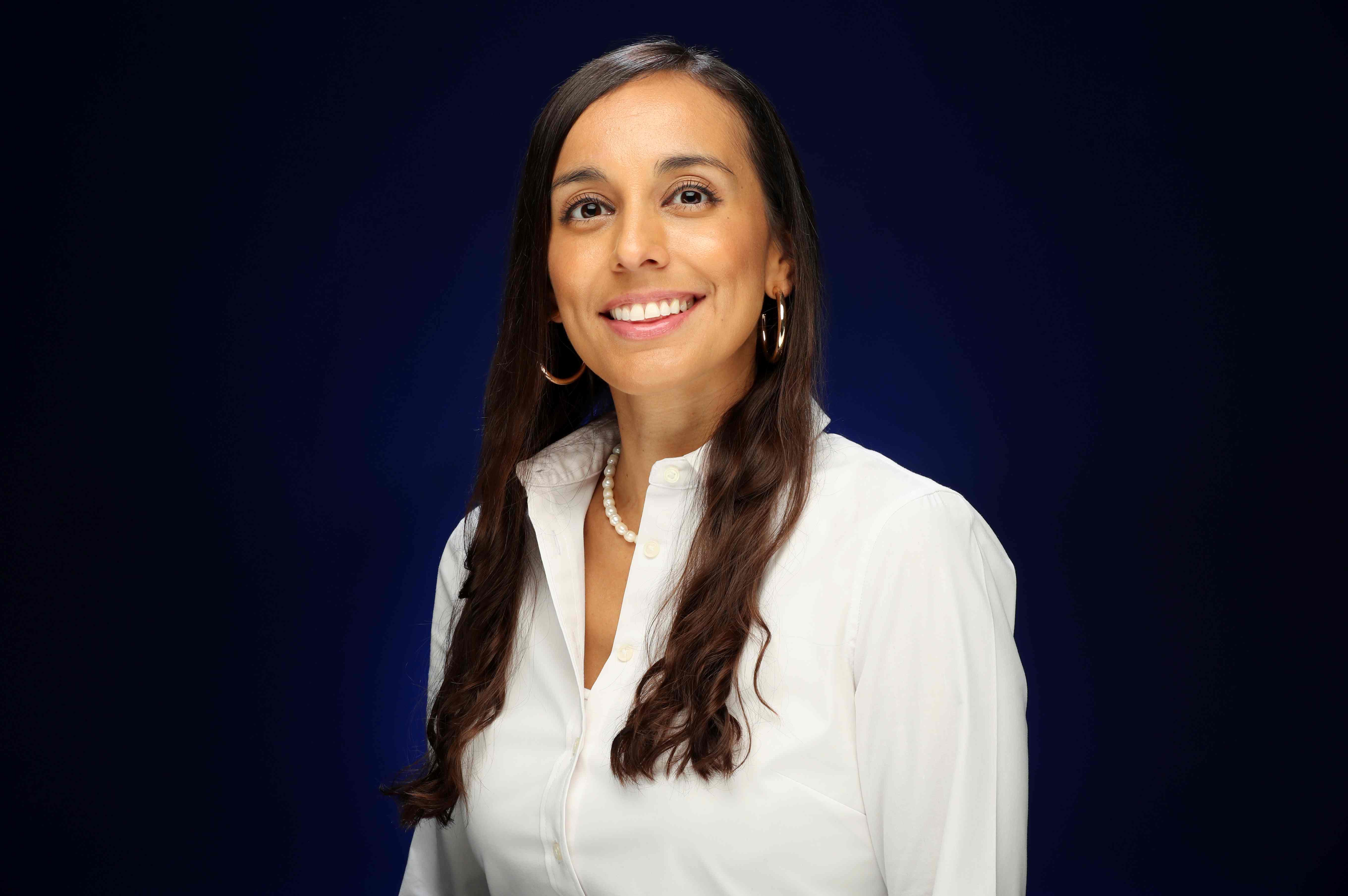
Angie Otiniano Verissimo, Ph.D.
Dr. Angie Denisse Otiniano Verissimo is an Associate Professor in the Department of Health Science at CSUSB. She was born in Lima, Peru and grew up in the Inland Empire. Dr. Verissimo earned her PhD and MPH at the UCLA Fielding School of Public Health, and completed her Postdoctoral Fellowship at UCLA funded by the National Institutes of Health. Her commitment to DEI is embedded in all the work she does. Her research examines (1) how discrimination and other social determinants of health contribute to health disparities, particularly among the Latinx community, (2) the health and social advantages of engaging community members in research and intervention processes, such as through the Community Health Worker or Promotor Model, and (3) addressing health disparities using an anti-discrimination framework. She has published her research on discrimination and health in several high-impact journals including the American Journal of Public Health and coauthored a chapter in “The Cost of Racism for People of Color: Contextualizing Experiences of Discrimination” published through the American Psychological Association. Dr. Verissimo has been involved in various community based programs and projects that bring services directly to community members and acknowledge the expertise of community members. She brings her enthusiasm and passion for social justice to the classroom and aims to establish a learning environment for her students that fosters critical consciousness. Dr. Verissimo is also one of the Co-Directors and founding members of Women of Color in Academia at CSUSB. She believes advancing DEI is important at CSUSB given a growing national discourse around discrimination in the US. CSUSB serves many diverse communities and is uniquely positioned to prepare future leaders and support current leaders in championing DEI work.